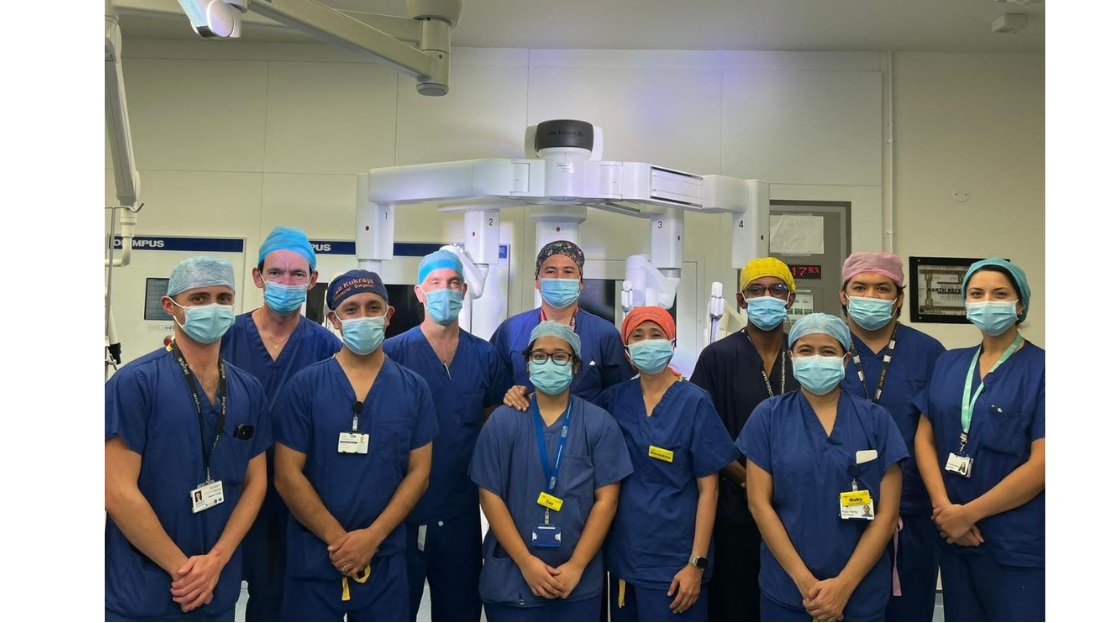
A woman diagnosed with stage three colorectal cancer says that a fear of getting in a lift may be responsible for saving her life.
Caroline Smith, 59, who lives in Swiss Cottage, north London, has suffered from claustrophobia her whole life and says the thought of taking a lift made her blood run cold.
As such she would always happily walk up the stairs to reach her flat on the sixth floor of her apartment building.
So, she knew something must be very wrong when in January she had to sit down and catch her breath after climbing just a single flight of stairs.
Caroline said: “I’d had no other symptoms at all and then suddenly this. I knew I was very fit and this couldn’t be put down to the menopause or getting older so I was straight on the phone to the GP.”
Tests confirmed Caroline had stage three colorectal cancer – doctors said the cancer would have been growing for two years - and she was scheduled for surgery a week later at the Royal Free Hospital.
She is one of the first colorectal patients at the Royal Free Hospital to undergo surgery via a surgical robot.
Carrying out surgery with a robot instead of manually brings a whole raft of potential benefits to patients and has for many years been used at the Royal Free Hospital to treat those with kidney cancer.
Due to the tiny incisions the Da Vinci Xi robot can make, patients are likely to need less time in hospital recovering, are less likely to need a blood transfusion during surgery and there is less chance of complications developing after the operation.
Caroline said: “My surgeon Mr Suliman explained I would be having the surgery done with the use of a surgical robot. I’d never met anyone who had had this but I was excited because I’d seen it done on TV programmes and on the news.
“I thought it was fantastic and after the operation I was delighted to have minimal scarring. I ended up being discharged from hospital three days later armed with nothing stronger than over the counter medication and although I was in mild discomfort I wasn’t in any pain. People who visited me couldn’t believe I’d had major surgery!”
Caroline is continuing with treatment – she is currently undergoing chemotherapy – but says she is feeling ready to potentially return to her secretarial work for an accountancy firm on a flexible basis in the near future. Caroline has also now conquered her fear and is now using the lift.
She added: “I’d like to say a big thank you to everyone who cared for me at the Royal Free Hospital. Everyone was amazing and I feel incredibly grateful and lucky.”

(Caroline pictured out and about after the operation)
Doctors are now hoping to offer robotic surgery to more patients with colorectal cancer.
Robotic surgery gives surgeons high definition, 3D visuals with a magnified view inside the patient’s body. The system translates all hand movements into smaller, precise movements of tiny instruments in the patient’s body. Surgeons who use robotic-assisted surgery operate through a few small incisions in the abdomen. This means it is a safe and effective way of treating tumours in the colon, rectum and anus.
Ibnauf Suliman, colorectal consultant, has performed eight surgeries so far at the Royal Free Hospital.
He said: “I’m delighted to hear Caroline is doing so well. All the patients we have treated so far were discharged with no surgical complications and within five days of their operation. We are continuing with the colorectal robotic programme and look forward in the future to potentially performing joint surgical procedures with our hepatobilary colleagues for patients whose cancer has spread.
“The huge success of the kidney cancer service has shown the many benefits of using robotic surgery and I’m delighted we’ve now been able to bring this to the Royal Free Hospital’s colorectal service, which is one of the biggest in the country.
“I’d like to thank the trust and the robotic users group led by Professor Doug Thorburn, Mr Derek Boyle and Mr Ravi Barod. I’d also like to recognise the anaesthetists Dr Marc Wittenberg and Dr Suehana Rahman and theatre sisters Angeline Shoniwa and Geraldine Gagasa, who have been instrumental in embracing this programme, as well as the rest of the colorectal theatre staff, for all their support.”
The Royal Free London saw the largest number of patients referred on a two week suspected cancer pathway of any London provider during 2022 and provided the second largest number of patients their first treatments.
 Translate
Translate